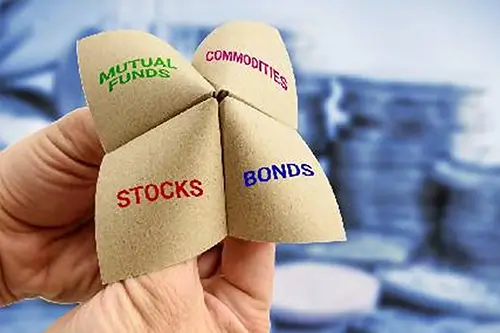Post Graduate Program in Financial Markets is a one year industry-oriented course offered by BSE Institute Ltd. The financial markets industry is a dynamic sector that necessitates current and specialized knowledge. The PG in Financial Markets provides complete financial market training through theoretical and practical teaching approaches, preparing students for future professions in finance.
The curriculum for Post Graduate Program in Financial Markets begins with the very basics which form the core of finance, such as Equity Research, Derivatives, Investment Banking, Fundamental Analysis and Equity. It eventually goes into highly advanced, specialized fields of study, like Forex & Debt Markets, Technical Analysis, Treasury & Risk Management and Securities Law.
Graduates of any background from a recognized University with a minimum of 60% score..
Participants should be below 27 years of age.
Working professionals can also apply.
Fill out the application form online at Click here or collect the form from our BSE Institute Limited in Kolkata.
Appear for the aptitude test, where your basic competency will be tested and gauged.
Get shortlisted for a personal interview round.
Acknowledge the offer letter and confirm your admission
BSE Institute being a premier facility in financial and capital market training is popular amongst the whole range of institutions in the Indian Securities Market, market participants like the Government, external agencies, financial institutions and corporates and also enjoys their support in its functioning. Our clients comprise of not only the leading organizations from the Banking, Financial Services and Insurance sectors in India but also from various other countries. Our global clients regularly fly down their employees to gather the unique insights that the BSE Institute programs have to offer into the working of financial markets in India.
The PGPFM career scope is broad and covers a variety of industries and work duties. The following list includes some of the most popular career domains after completing PG in Financial Markets:

A specialist in portfolio management is in charge of selecting investments and carrying out investment activities on behalf of people or organizations.

A financial market professional's responsibilities include developing financial models, valuing selected companies, & gathering intelligence on equities data, etc.

A Financial Advisor is a finance professional who provides consulting and advice about an individual's or entity's finances on investments, taxes, estate planning, etc.

The Project Management job role includes workplace management, handling short and long-term projects directly, developing strategic program goals, etc.
BSE Institute Limited (BIL) is a wholly owned subsidiary of BSE Ltd. BIL inherits from BSE the knowledge and insights into the capital markets industry, garnered over the past 148 years. BSE Institute Limited offers a bouquet of courses related to financial markets for students interested in achieving and upgrading their skills in this field, ranging from Master’s program from Mumbai University, International PG programs and more than 100 plus short term certification courses in classroom & online mode. BIL is also involved in some special initiatives like BFSI Sector Skill Council of India, bsevarsity.com and Zone Startups. BSE Institute Limited was assessed and certified with ISO 9001:2008.
www.bsebti.com

Anyone serious about a career in finance, whether in banking, consulting, private equity, or hedge funds, should apply to the PG course Financial Markets. You will have access to specialised planning and assistance at any moment, which will help put you up for a successful career.

The unique combination of high-quality professors and courses, industry contacts, and helpful career assistance, as well as knowledgeable peer students, has helped me establish and work toward my professional goals. I have no doubt that my study in the PG in Financial Markets course at BSE Institute has better equipped me for a successful career in finance.

The PG in Financial Markets course was both enjoyable and insightful. The course focuses primarily on practical knowledge and its application, preparing you for employment. During this training, I got the opportunity to learn from and be trained by the finest in the field. The training improved my stock market knowledge and provided me with the skills needed to work in the financial industry.

The faculty for the PGPFM course were excellent, and they were focused on offering practical application and execution, which aided my understanding. I am grateful to BSE Institute Ltd for establishing my profession in the financial industry.

I enrolled in this course to learn about the market, and I learned a lot about the financial market conceptually as well as obtained information that would benefit me in the future. This training has been really beneficial and effective for me.

This institute has a one-of-a-kind approach to educating its students. Their primary focus is on practical rather than theoretical issues. They were effective in covering the whole spectrum of finance, from basic and technical studies to the nitty-gritty of trading. The professors are kind, and their helpful comments helped me a lot.
BSE Institute Ltd.'s PGPFM is a one-year postgraduate program in Financial Markets that focuses on the operation and challenges of financial markets. This course will give students an overall understanding of the financial market while also helping them improve their corporate and interpersonal skills.
The job scope of the PGPFM is broad and includes many work roles and industries. Students can pursue careers in investment banking, capital markets, risk assessment, corporate finance, and other fields after completing their course in the financial market.
If you are a student who is interested in the complexities of finance and financial markets, a course like PGPFM is ideal for you. The Financial Markets industry is an excellent choice because it is widely recognized for providing a high standard of living, a variety of work options, and competitive pay scales.
BSE Institute, as a pioneer and established leader in Financial Education, focuses on developing talent for the BFSI industry. The PG in Global Financial Markets is the best course for someone seeking to forge a career in the financial markets. And where else could one learn about financial market, than the financial stomp ground of India itself - Bombay Stock Exchange Limited. BSE Institute Ltd has financial market expertise garnered over three decades from its namesake and hence would be the perfect avenue for learning about financial markets.
Fill out the application form online at Click here or collect the form from our BSE Institute Ltd in Kolkata
Eligibility Criteria for the PGPFM course:
PG in Global Financial Markets is an offline course and the lectures will be conducted at BSE Institute Ltd. campus in Kolkata.
The duration of the PG in Financial Markets is 1 year and spans over 2 semesters.